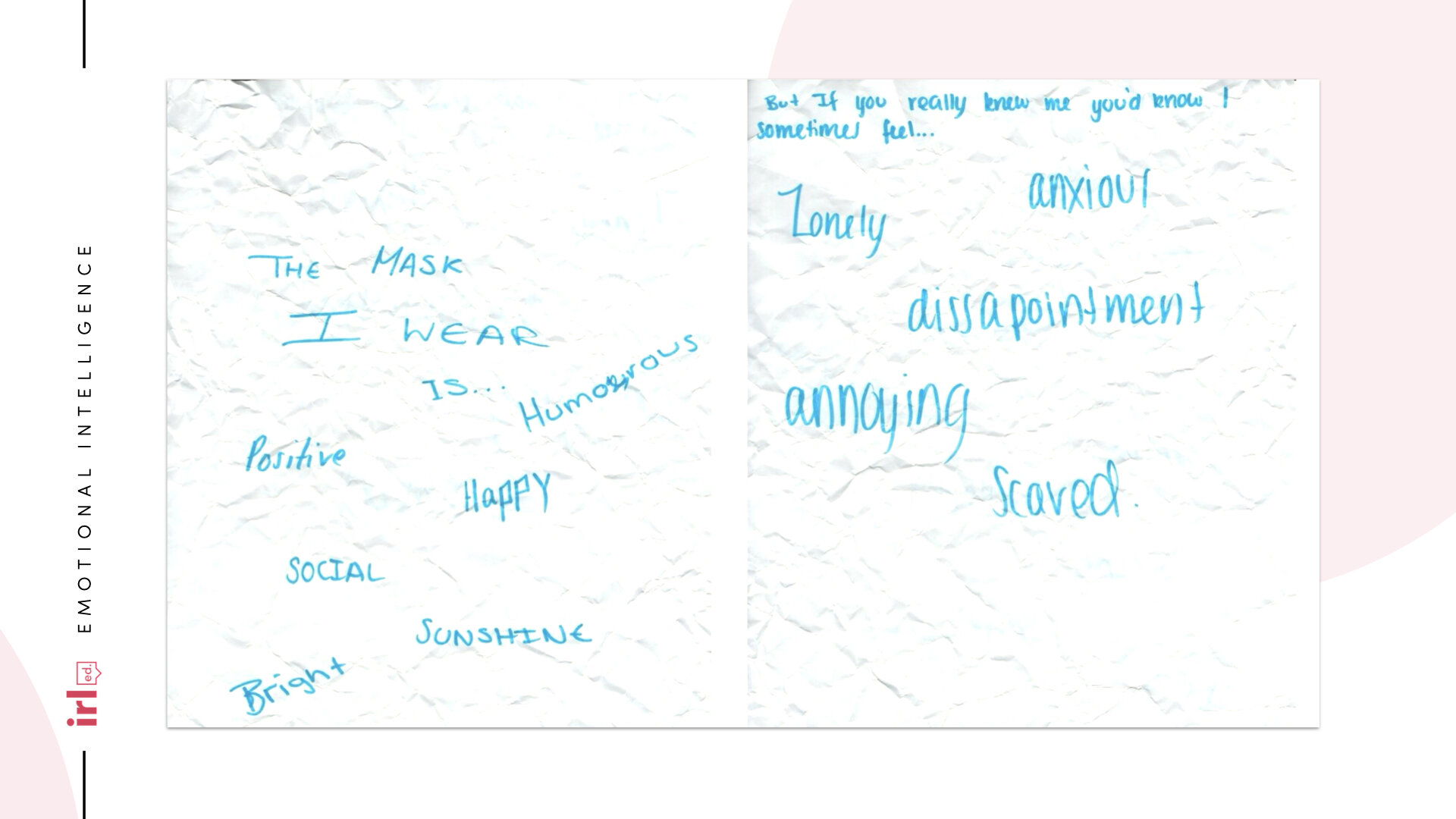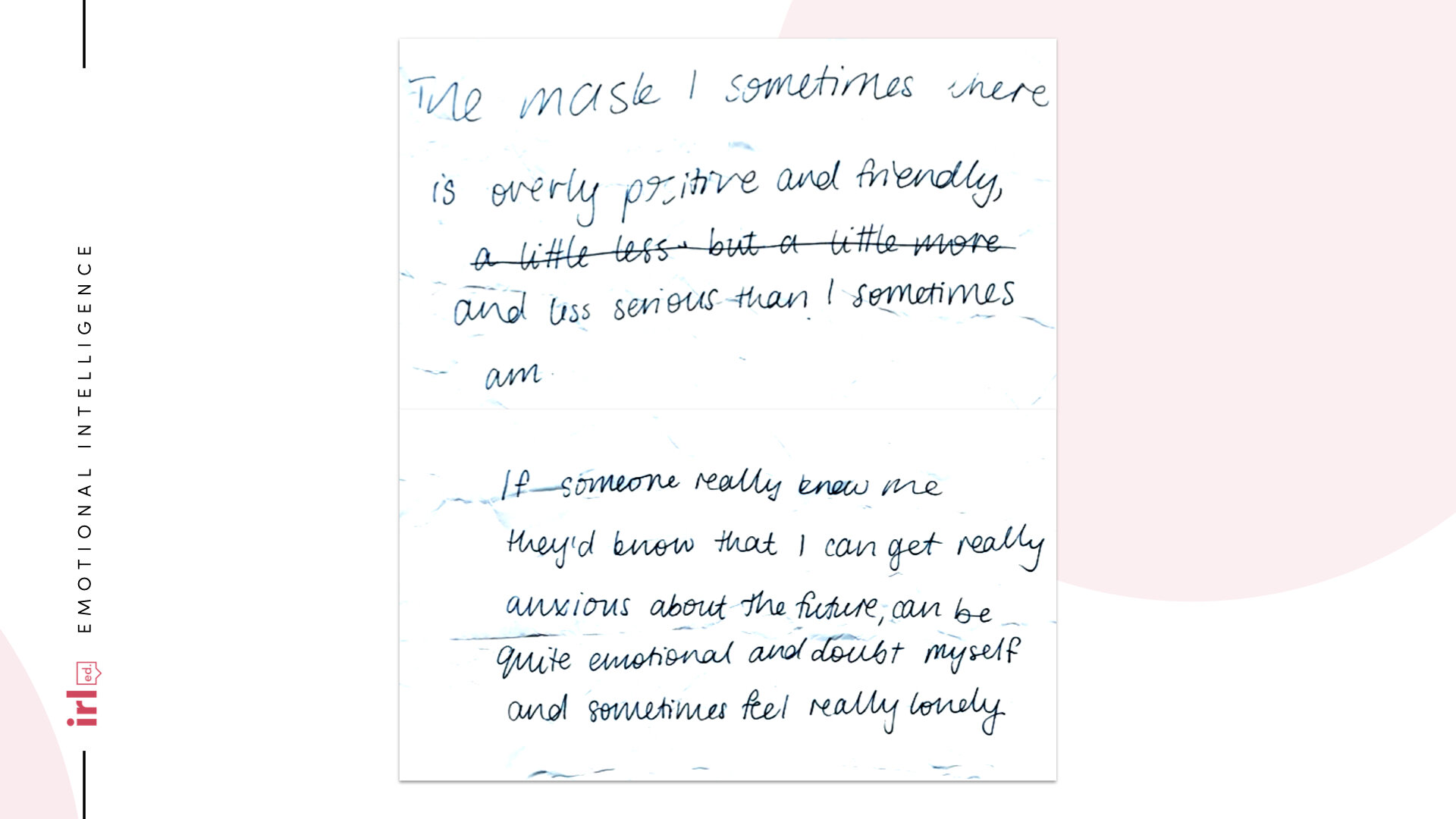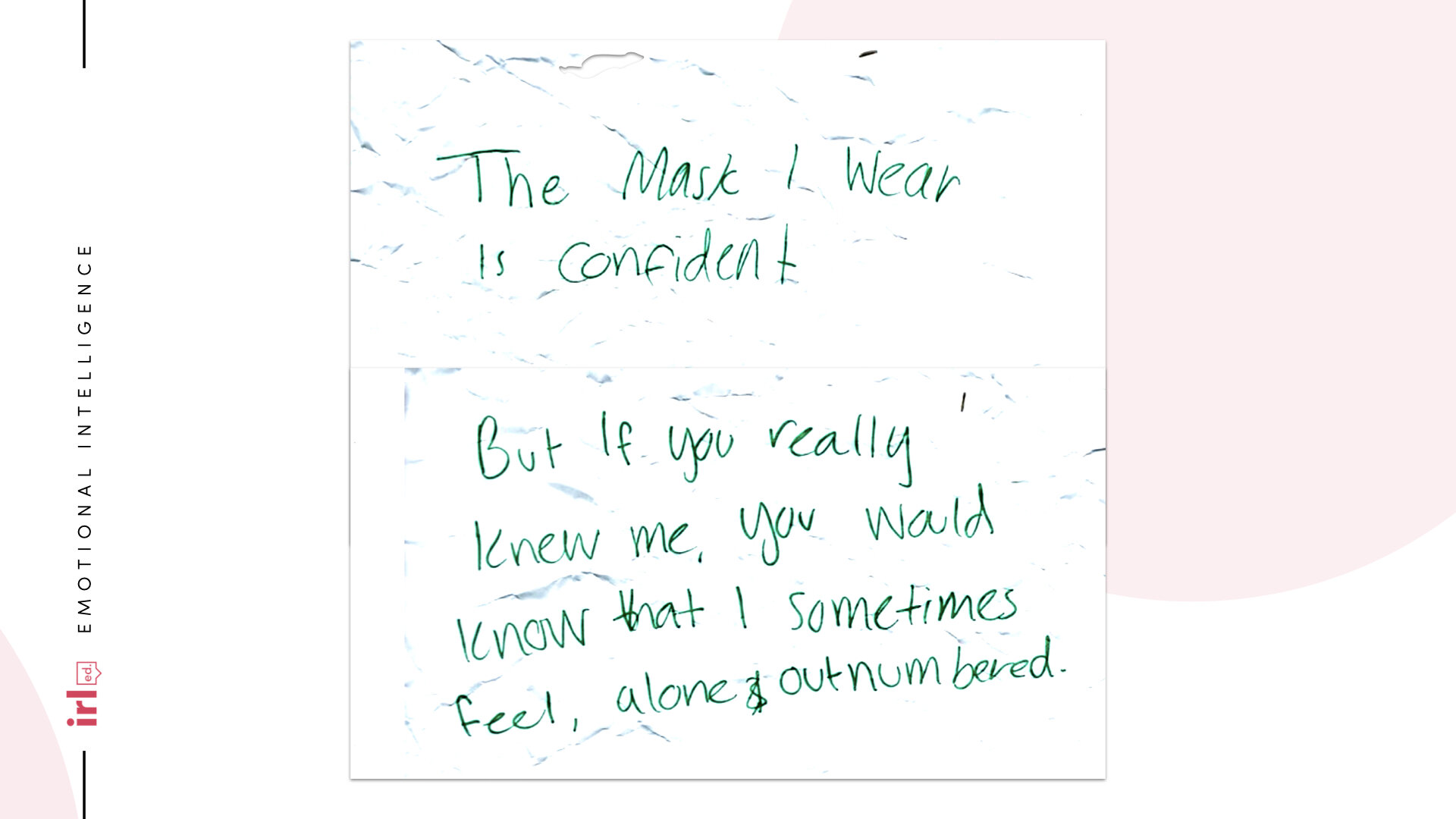EMOTIONAL INTELLIGENCE
Developing greater emotional maturity is a challenge many adults struggle with, yet something we implicitly assume students will manage on their own.
But talking about our feelings is complex and messy and hard. It requires authenticity and vulnerability from young people in the midst of defining their sense of self and trying to fit in.
We create an environment of psychological and emotional safety by normalising dissenting opinions, and giving permission for students to open up by sharing our own heartfelt stories. By peeling away their masks and connecting with their authentic selves, students can connect with each other through empathy, understanding and an appreciation of similarities each other’s inner world.
Emotional intelligence isn’t ingrained, we can become smarter with feelings through conscious understanding and deliberate practice. The benefits of doing so are wide reaching.
Not only are emotionally intelligent students happier and more resilient, they share stronger relationships with their friends, family and teachers, make better decisions, communicate more effectively and perform better at school.
Value for Participants
Activity Showcase 1.
No matter how painful your weekend marking or what’s happening in your personal life, you’re still going to come to school on Monday and be professional in front of your students and colleagues.
We all put on these masks to veil how we’re really feeling, and shape them to fit the environment we’re in.
These masks are important. They protect us when we’re feeling vulnerable, help us be who we need to be, and keep us emotionally safe.
But we must also recognise they’re just masks. They don’t help us process the emotions we’re really feeling on the inside, and can prevent us from connecting authentically with others.
In our ‘Masks’ activity, students identify the masks they wear on the outside, and how they differ to their real feelings on the inside. We architect the opportunity for them to anonymously share and connected with each other’s authentic selves, where they recognise their deepest, toughest feelings are unknowingly shared by their friends too.
By modelling emotional authenticity and the strength of vulnerability through sharing their own stories, our facilitators safely take students to the depths necessary to affectively engage and meaningfully connect with this activity, and each other.
Below are some examples of the worksheets students have created:
Why Emotional Intelligence?
It was Albert Einstein that said “if you judge a fish by its ability to climb a tree, it will live its life believing it is an idiot.”
Emotional Intelligence is one of the best predictors we have for long term success; not just financial or career success, but subjective satisfaction with the quality of our friendships, our family life and general wellbeing.
In fact, it is a far stronger predictor than our IQ.
The good news is unlike IQ, EQ is a skill we can improve, with understanding and practice.








